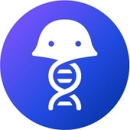In the mid-2010s, seemingly every tech company had the same mission: to make the world a better place. There aren’t many companies making such claims today, making room for more nuanced company visions.
When it comes to validating a company’s commitment to its mission, Bertina Yen, SVP of people and community at mobile health app Evidation, said jobseekers should note how often the mission comes up during interviews. Julia Backon, head of Tech for Social Good Americas at JPMorgan Chase, doubled down on that approach and suggested asking interviewers why they’ve stayed at the company to see if the mission played a role.
Of course, finding the right mission is equally as important. On that front, Dean Talanehzar, head of talent at biotechnology research management platform Benchling, says jobseekers should pay careful attention to how they feel when reading mission statements.
“Understand the mission and its alignment with your personal values and career goals,” Talanehzar said. “A genuine mission should be more than words; it should be a source of motivation that aligns with your aspirations.”
Yen, Backon and Talanehzar are all part of companies that aim to make a positive impact on their industry, local community or users. They sat down with Built In San Francisco to share their insight on what it means to be a mission-driven employer.
Benchling’s R&D Cloud is designed to accelerate biotechnology research. The platform enables scientists to digitize workflows, streamline collaboration and more easily share data.
What is Benchling’s mission?
Our mission is to unlock the power of biotechnology. Think of Benchling as a central source of truth for biotech research and development. Our platform is designed to help scientists do their research, make discoveries and drive progress faster and more seamlessly. We’re helping scientists power new possibilities for humanity by improving productivity, collaboration, data quality and access to insights.
Building with biology opens up limitless possibilities for scientists in R&D organizations. We owe it to those dedicating their lives to scientific discovery to equip them with the best tools possible. As we navigate away from the pandemic, this vision feels more urgent and important than ever.
How does this mission help you and the business stay on track?
Our mission fuels my curiosity. I’ve always been interested in science and technology, and as a child, I spent hours deep in biology and astronomy books and working on my Commodore 64. Benchling fuels my innate curiosity and motivates me to bring my best. Helping scientists power new possibilities is even more meaningful in these uncertain times and has helped me stay grounded when we hit challenging headwinds.
As a business, our mission helps us differentiate ourselves and attract the best science and technology talent. Many candidates today are looking for opportunities for their work to be purpose-driven and want to know they’ll make a difference in the world. They can find that here, and this has helped us attract some of the brightest minds in science and technology.
How can jobseekers cut through the fluff to determine whether a company has a mission worth supporting?
Assess companywide alignment and culture. An authentic mission extends throughout the organization. Look for signs that the mission is integrated into the company culture, evident in leadership principles and values, reflected in products and services, and a driving force in recruitment. A holistic alignment suggests a deeper commitment to the mission.
Leverage the interview process to validate the mission’s authenticity. Ask about concrete actions and initiatives that demonstrate commitment to the mission. By doing so, you not only gain insight but also signal your dedication to the mission’s cause.
By paying attention to these areas, you can distinguish companies with missions that genuinely deserve your support, paving the way for a fulfilling and purpose-driven career at a company that aligns with your values.
Leverage the interview process to validate the mission’s authenticity.”
JPMorgan Chase is a global bank and financial services company.
What is JPMorgan Chase’s mission?
Tech for Social Good, or T4SG, is a social impact practice at JPMorgan Chase. T4SG corrals the passion, power and skills of our tech workforce for the social sector, our communities, customers and clients to help make the world a better place. We have several programs that allow us to make an impact with a tech-first mindset.
We help nonprofits and socially focused organizations ideate on how tech can address some of their biggest challenges through hackathons. Our employees build and deliver tech, data and design solutions that help organizations advance their missions. We also work with communities to build and enhance tech skills through educational offerings. Ultimately, we meet our clients and communities where they are and address their needs through the skills of our workforce.
We have over a decade of social impact experience and our programs have allowed us to serve more than 1,200 nonprofits. More than 15,000 employee volunteers have collectively given more than 700,000 hours toward these efforts. We’ve directly engaged more than 150,000 people and indirectly reached many more. The scale and scope with which T4SG operates and delivers is fairly unique for financial services and big tech companies.
How does your mission help you and/or the business stay on track?
Technology is often a pain point in the social sector, and T4SG helps address that challenge. In addition, our customers, clients and employees want to know if the company they do business with or work for does good in the world. We provide opportunities for employees to address societal issues while our programs build culture and community within JPMorgan Chase, bringing purpose to work.
We provide unique engagement opportunities that allow our tech staff to innovate and learn new skills. We focus on supporting people and organizations from all backgrounds, connecting with the firm’s diversity, equity and inclusion mission. We know our employees feel personally rewarded when they can use their unique skill sets to make an impact or help a social cause, and we provide opportunities to do just that. Giving back is in the DNA of our tech workforce.
Our employees feel personally rewarded when they can use their unique skill sets to make an impact or help a social cause.”
How can jobseekers cut through the fluff to determine whether a company has a mission worth supporting?
Companies that provide employees with a sense of purpose, empower them to create positive social impact and offer fruitful careers are unique. JPMorgan Chase offers that and more. We are inclusive: Anyone can play a role in helping society and we provide employees the chance to give back in ways unique to them, their skills and ideals.
What’s special about T4SG is that we are mission and organization-agnostic. We work with socially focused organizations of all shapes and sizes across all social causes. There is something for everyone, whether it’s educating youth about cyber safety, teaching students to build an app using HTML and CSS, mentoring students on how tech and data can solve real operational challenges, or building a mobile app or customer relationship management platform for a nonprofit to save them hours of manual work.
To cut through the fluff, ask the right questions when talking with recruiters or employees. Talk to them about their experiences and opportunities, ask why they’ve stayed at the company and read their LinkedIn posts. Really try to get a feeling for the culture from those who experience it and see if it matches your values and desire to do good in your community.
©2023 JPMorgan Chase & Co. All rights reserved. JPMorgan Chase is an Equal Opportunity Employer, including Disability/Veterans.
Evidation’s mobile app enables users to better understand how everyday actions contribute to their health as well as participate in health research studies.
What is Evidation’s mission?
Our mission is to create new ways to measure and improve health in everyday life. We connect directly with millions of individuals and unlock groundbreaking insights from everyday health data to encourage people to track and take healthy actions, enable our healthcare partners to deeply understand and engage with their populations, and advance research with new, representative measures of health.
Clinical interactions, like brief doctor’s appointments, don’t do enough to help us understand health. Everyday health experiences are often invisible — which means there are missed opportunities to improve health. The insights gleaned through our platform have the potential to help us and our partners better understand and characterize health, stratify risk, diagnose and treat diseases earlier, and encourage individuals to take healthy actions when it matters most.
How does this mission help the business stay on track?
Our employees’ connection with Evidation’s mission is most apparent during the hiring process and in times of challenge or change. We know that our top candidates may have multiple job offers, so it is important for us to understand the relative importance of their internal and external motivators before making an offer. In a nutshell, what inspires the person to bring the best version of themselves to work?
The desire to advance our mission has been a key driving force for the majority, if not all, of Evidationeers to join and stay at the company. The ability to keep employees aligned with this mutually desired, ultimate goal is particularly critical when there are complex problems to solve, challenging deadlines that can’t be missed, organizational changes or pivots in the company strategy.
The shared commitment we feel toward the mission serves as a reminder of why we put in the effort to produce quality work and offers reassurance that we are working alongside other similarly mission-driven teammates and can collectively achieve extraordinary results.
How can jobseekers cut through the fluff to determine whether a company has a mission worth supporting?
I recommend two approaches. First, see if the wording of a company’s mission statement resonates with you. For example, as a physician, I naturally connect with health-focused missions. For our Evidationeers, their desire to improve health in everyday life is often tied to their own experiences or the experiences of loved ones in the healthcare space.
Second, jobseekers should pay attention to how often the company’s mission is brought up by interviewers as one of the reasons they work at the company. If these testaments feel like a natural part of the conversation and not forced or scripted, it is likely that the mission is truly embedded into the company culture and not just some words thrown onto its website.
Jobseekers should pay attention to how often the company’s mission is brought up by interviewers.”










